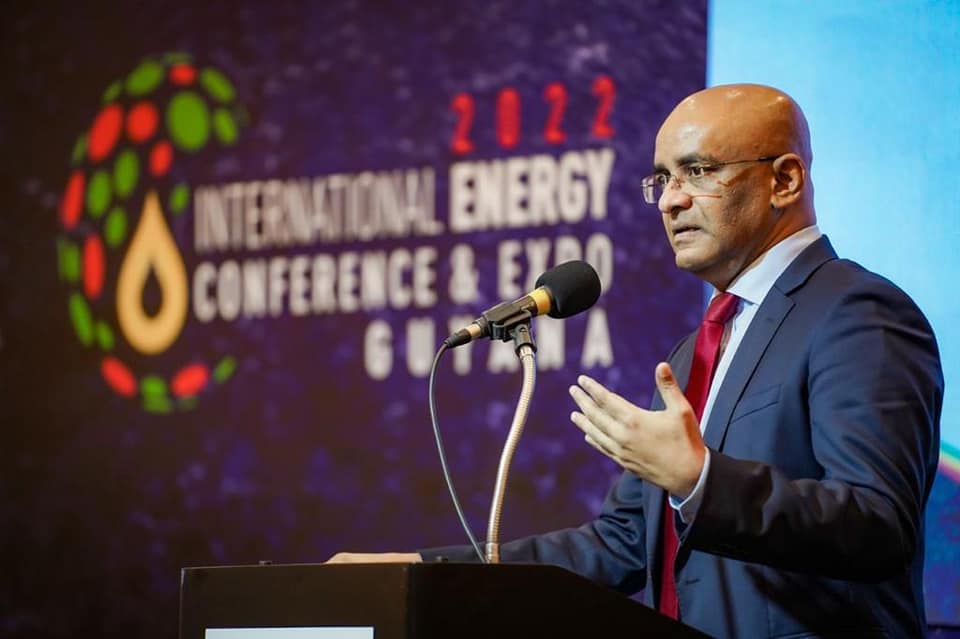Guyana’s Vice President, Dr. Bharrat Jagdeo told attendees at the opening of the inaugural International Energy Conference on Tuesday that authorities are considering using the remaining oil blocks to form a National Oil Company (NOC).
“At some point in time, the remaining blocks which we have, many people are asking “when can we access these blocks or some concession offshore?” In the past, it was first come, first served basis,” Mr. Jagdeo said. “Since we have found oil, we have made it clear that we will either go to an auction sometime in the third quarter of this year, with or without seismic done on our part. That decision still has to be made in government or alternately, use those blocks to form a national oil company.”
The Vice President said government has received proposals from large operators looking to work with authorities to form an oil company and utilise the remaining blocks.
“To offer clarity, all of those decisions would be made. So, I hope that answers the question for those who are wondering how they can apply for our new blocks,” he pointed out.
Guyana supports accelerated exploration
Since 2015, Guyana has become a major regional hotspot for oil and gas with well over 20 major discoveries at the ExxonMobil-operated Stabroek Block amounting to more than 10 billion barrels of oil equivalent resources.
The country’s first barrel of oil was produced in December 2019 at Liza Phase 1 and the second Phase of the Liza Development started up just last week.
The Vice President made it clear that the government wants this success to continue and is working to ensure the South American country is best positioned to help meet the oil and gas demand in the coming years, even as it supports net-zero by 2050.
“And so, in Guyana’s case, we support accelerated exploration. We are making it clear, we support accelerated exploration,” Mr. Jagdeo said. And our incentive regimes will reflect that support for accelerated exploration.
He said government will continue to put measures in place to encourage the existing holders of concessions to move swiftly to exploration and to expand.
“Now…we have to try to keep the regimes evolving and our regulatory approvals at a pace so that we don’t become a humbug on the development of the industry and slow down the pace,” he said, while pointing out that this has been a challenge which government is working to overcome.
He emphasised the principle of shared prosperity with investors and ensuring that those who plug money in the high-risk oil and gas sector, have an opportunity to get a return that mirrors the risk.
“That’s important for us from an investment perspective. So, the physical regimes, the new PSA, all of these issues evolve in the direction not to remove the incentives for fast-paced exploration nor a decent return on capital… but at the same time



